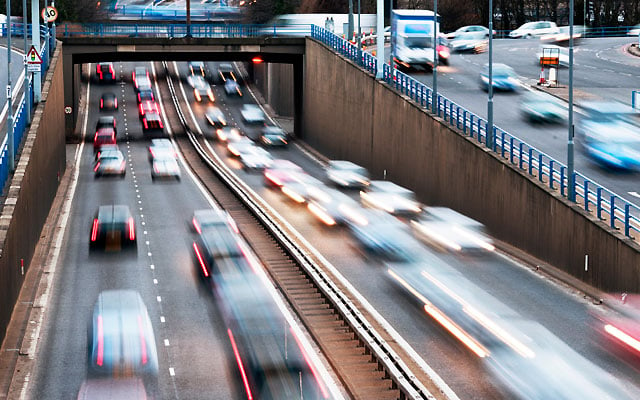Satnavs can already place you on a map, and know the name of the road you are on, and it's easy for them to be programmed to know the speed limit.
Once the car knows where it is and what the local speed limit is then all that's needed is a link to the throttle so the car won't go beyond the limit.
- ISA would only ever stop you exceeding the limit, or warn you of the maximum speed limit.
- You’d still have to watch your speed and make sure that it’s appropriate for the conditions and local situation.

Three types of ISA system are possible:
- Advisory – a simple device that tells you the speed limit, and gives a warning when you go over the limit.
- Controlling – hard wired into the car so that it becomes impossible to break the speed limit.
- Discretionary – a half-way-house, where you can switch between 'controlling' and 'advisory', or even switch the system off altogether.
ISA is one of the safety technologies being considered as part of a review of European vehicle safety regulations.
It’s unlikely that regulation will go as far as requiring full, controlling, ISA, but advisory systems are likely to be required on all new cars from somewhere around the early 2020s.
- Retro-fitting to existing vehicles wouldn't be required.
Since 2013 Euro NCAP has been awarding points for both advisory and discretionary ISA as part of its overall ‘safety assist’ rating. The assessment looks at how the system determines the local speed limit and how it communicates information to the driver.
How could ISA affect driving?
- Controlling or discretionary ISA could make overtaking difficult, and prevent accelerating out of a misjudged situation in some cases. But you’d just have to remember to switch the system off when overtaking.
- There could be problems if the speed limit changed to a lower speed during an overtaking manoeuvre but you probably shouldn't be trying to overtake in such a situation.
- Controlling ISA can lead to 'bunches' of cars, all travelling at the same speed, with some drivers depressing the accelerator to the floor and driving just as fast as the car would let them.
Driver support
According to our Driver Poll:
- Drivers are split fairly evenly between those who think compulsory controlling ISA would be acceptable and those who don’t.
- On the other hand, 3/5 of drivers say they would use a device to stop them exceeding the speed limit if one was fitted to their car. We also get calls from members asking where they can buy such a product.
- On balance, a voluntary, discretionary or advisory system probably has safety and practical benefits as it can remind us of speed limits and help prevent accidents and penalty points.
A mandatory, 'controlling' system would be a step too far as the human element of judgement must always govern our safe driving.
Ultimately the best speed limiter is your right foot.
17 February 2017
